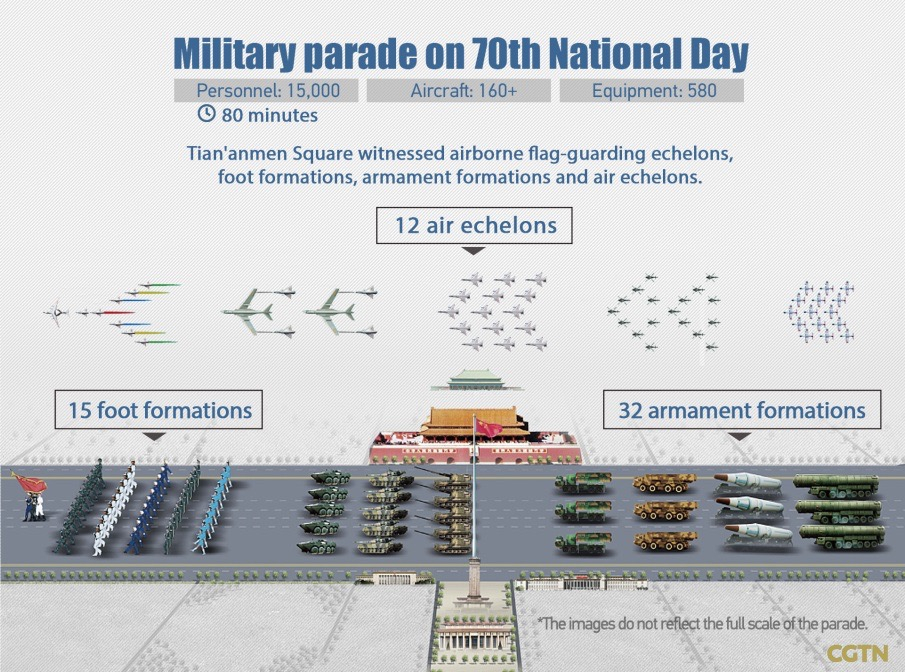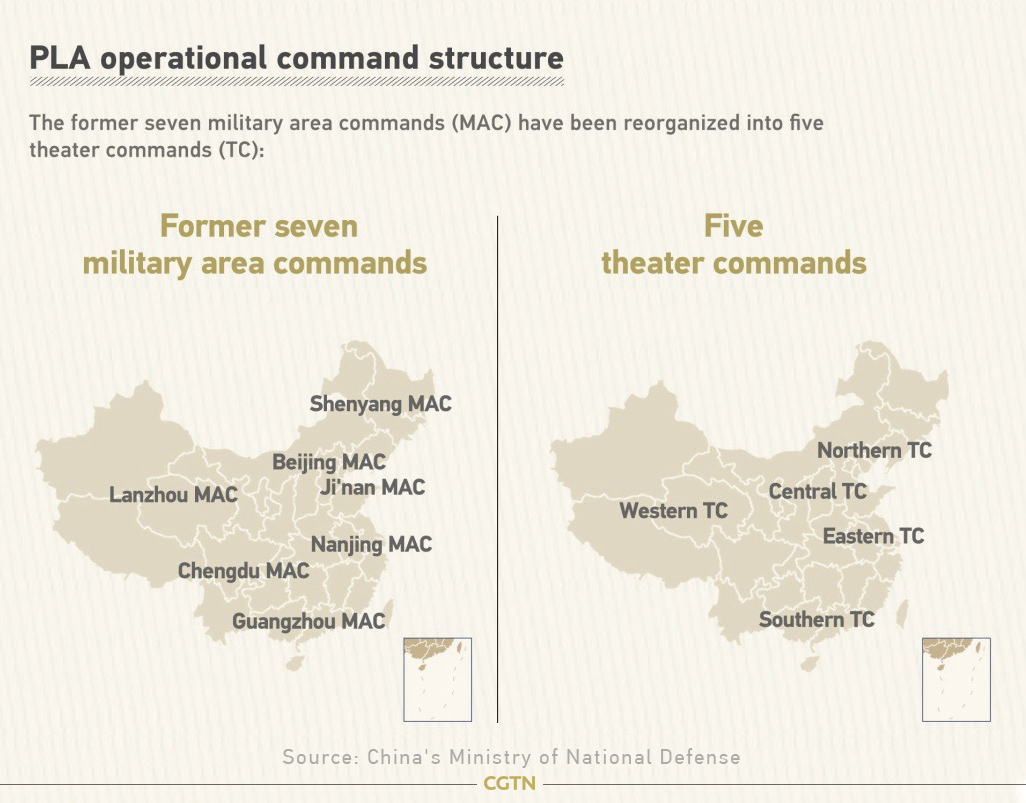Chinese Defense Ministry spokesman Wu Qian on Tuesday defended the country's continuous growth in defense budget – which slowed this year – saying "it's very necessary to do so," while reaffirming China's principle of peaceful development.
According to the recent government work report, this year's defense budget grew by 6.6 percent, while the defense budget for 2019 and 2018 grew by 7.5 percent and 8.1 percent respectively.
Read more:
China's government work report on military
"Always be prepared for sudden dangers in time of comfortable lives. That's one major principle for our Party to run the country," Wu told reporters. "Just right now, the world is not 100 percent peaceful."
China is embracing new risks and challenges in the national defense sector, according to the military official. Internationally, the general security system is now challenged due to the unilateralism ideology certain countries have upheld over time, he said.

Infographic illustrates the military build-ups on China's 70th National Day. /CGTN
Infographic illustrates the military build-ups on China's 70th National Day. /CGTN
In addition, he called the growing budget "a need for the army to shoulder more international obligations." The People's Liberation Army (PLA) – China's armed forces – have been actively taking on responsibilities worldwide, including actively taking part in UN peacekeeping missions.
"Currently, 35 sets of navy teams are fulfilling their missions in the Gulf of Aden and Somalia," Wu noted.
'Taiwan independence' is a dead end: Wu
He also touched on the Taiwan issues earlier, warning Taiwan authorities that seeking "Taiwan independence" is a dead end and that confrontation leads nowhere.
Wu, also a member of the People's Liberation Army (PLA) and armed police force delegation to the ongoing third session of the 13th National People's Congress, made the remarks on the sidelines of the session in Beijing.
"The cross-Straits ties are complicated and severe at the moment. It is the Taiwan authorities who have turned a blind eye to people's well being and by turning its back on the 1992 Consensus that embodies the 'One-China principle'."
China is expected to mark the 15th anniversary of its Anti-Secession Law.
In 2005, the law was adopted by the third session of the 10th NPC, setting a legal framework to prevent Taiwan from being seceded from China and to promote peaceful national reunification.

Operating structure of China's People's Liberation Army (PLA). /CGTN
Operating structure of China's People's Liberation Army (PLA). /CGTN
In an event marking the 40th anniversary of the "Message to Compatriots in Taiwan" last year, Chinese President Xi Jinping said, "China must be reunified and Chinese people are willing to strive for the peaceful reunification with the utmost sincerity and greatest effort."
From Deng to Xi, a look back at 40 years of reunification efforts across Taiwan Strait
The attempt to seek "Taiwan Independence" is a dead end, Wu warned. The PLA is "determined, confident and capable" to crack down on foreign interference and the "Taiwan Independence" plot, he said.
The PLA will take all necessary measures to defend the country's territory and sovereignty and maintain the peace and stability of the Straits, the spokesman added.
Asked about U.S. arms sales to Taiwan, Wu said Taiwan is part of China and the Taiwan question concerns China's core interests.
China opposes U.S. arms sales to Taiwan and strongly rejects any form of foreign interference in Taiwan, Wu said.
Last week, the Trump administration notified Congress of a possible sale to Taiwan of advanced torpedoes worth 180 million U.S. dollars.
Such action has gone against the one-China principle and the three China-U.S. joint communiques and jeopardized the military ties between the two countries, he added.